Martha Roby: A revealing email; an evasive explanation
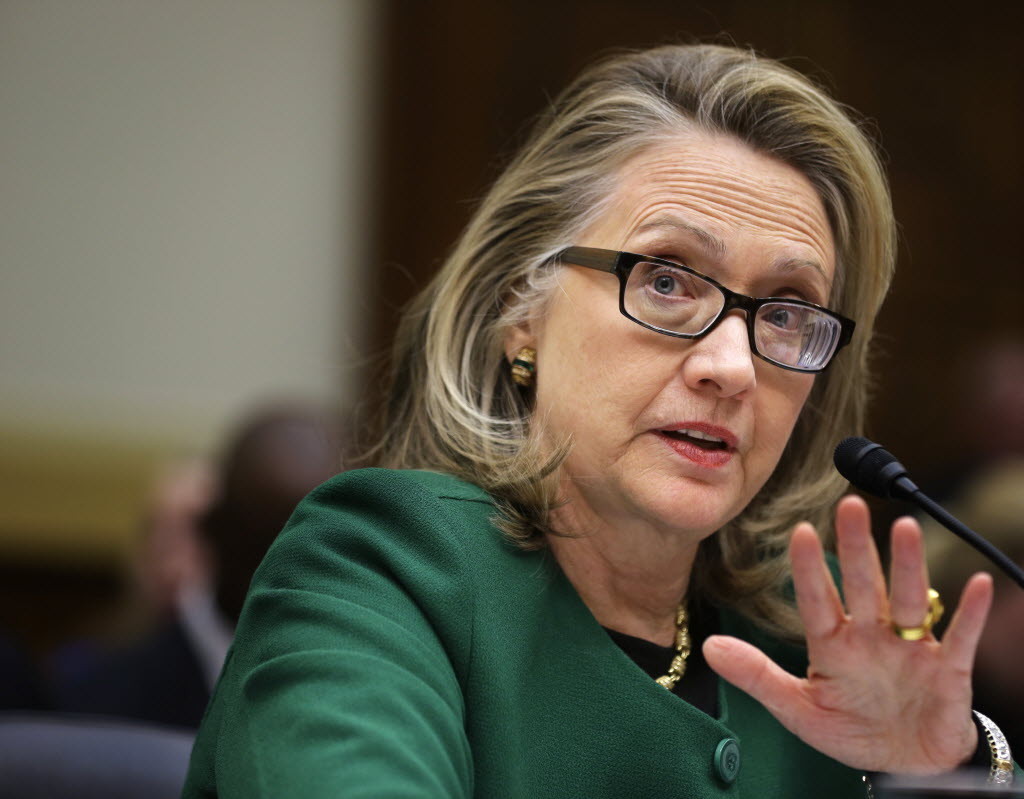
As you know, former Secretary of State Hillary Clinton on Thursday appeared the Select Committee on Benghazi to answer questions about what happened before, during and after the September 11, 2012 attack on a diplomatic facility in Benghazi, Libya. It was a long hearing with hours of back-and-forth testimony, and I wanted to share a few quick takeaways from one of my own exchanges with Mrs. Clinton. In my first question, I asked Clinton about an email between State Department employees regarding Clinton’s awareness of the American presence and security situation in Benghazi, Libya months before attack. In an email dated February 9, 2012, Alyce N. Abdalla said the following to State Department colleague Evyenia Sidereas: Also, the Secretary asked last week if we still have a presence in Benghazi – I think she would be upset to hear that yes we do but because we don’t have enough security they are on lockdown. I asked Clinton how this email squared with her claims to have been closely involved in the Libya strategy. “How could this be,” I asked, “that two of your staffers are emailing about whether or not you even knew that we had a presence in Benghazi in 2012 with all your interest in Libya in 2011?” Clinton said she “couldn’t comment on what has been reported,” about the emails and insisted “of course I knew we had a presence in Benghazi.” I then asked Clinton why dedicated State Department employees would fabricate a substantive conversation with the Secretary of State about a country she had made such a priority. In the long explanation that followed, Clinton again insisted she was aware of the situation in Benghazi and implied that the Ms. Abdalla was a low-level employee disconnected from her inner circle. Actually, Abdalla was the Libya Desk Officer, making her directly responsible for awareness of the situation in Libya. When Clinton told me she had “no recollection” of the conversation, I twice asked her to look at the email in the binder in front of her to refresh her memory. Twice, Secretary Clinton refused to look at the binder. This was only my first of multiple exchanges with Secretary Clinton, but it is emblematic of the evasive nature of some of her answers. As Secretary of State at the time of the attacks on our diplomatic facility in Benghazi, Clinton should have been more straightforward in answering questions, particularly when they relate to her awareness of the political and security situation leading up to the attack. Mrs. Clinton is an important witness in our investigation about the Benghazi attacks, but certainly not the only one. More witnesses remain, and our Committee will press forward in gathering the facts needed to form a conclusive report. Martha Roby represents Alabama’s 2nd Congressional District. She is currently serving her third term.
Bradley Byrne: National security should always be our top priority
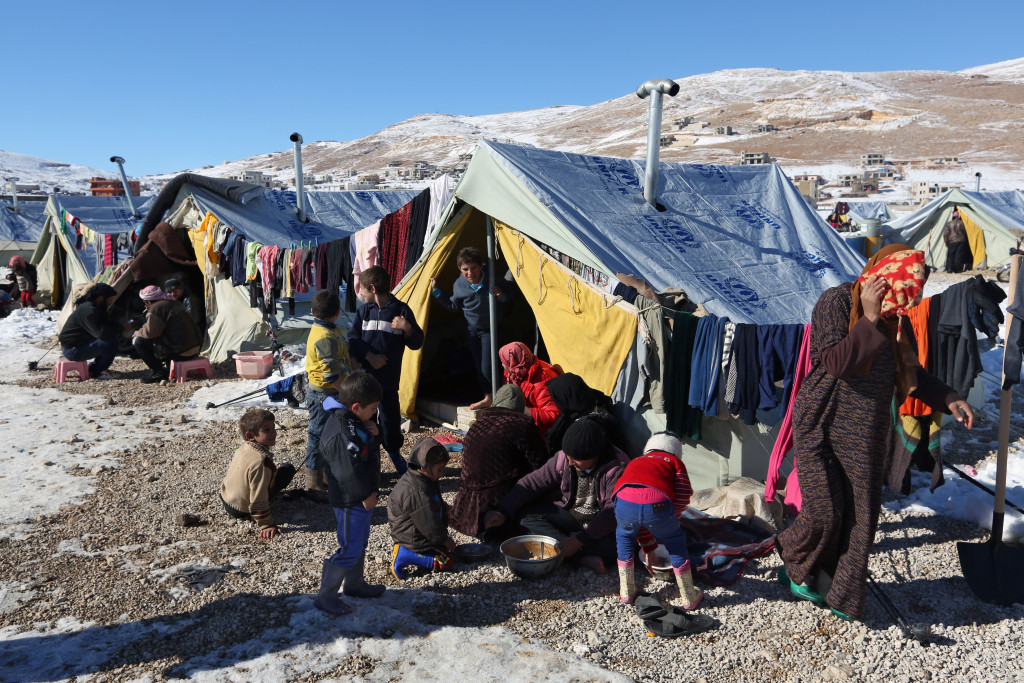
When considering whether to vote in favor of legislation, I often ask myself a simple question: Is this in the best interest of the American people? I believe that should be a guiding principle for all our elected officials when they are faced with a major decision. Recently, President Barack Obama and Secretary of State John Kerry announced a plan to increase the number of refugees allowed into the United States. Under their plan, the Obama Administration plans to accept at least 10,000 refugees from Syria. As soon as I heard this news, I had major concerns about the impact this decision would have on the American people and the national security of our country. Let me explain why. Currently, Syria is home to a major conflict between the regime of President Bashar al-Assad, fighters with the Islamic State, and many different factions of rebels who wish to overrun the government. This brutal fighting has resulted in a mass exodus of Syrian people looking to escape their war torn country. That’s where President Obama’s decision comes into play. As defined by the Immigration and Nationality Act, a refugee is someone who is unable or unwilling to return to his or her home country because of a “well-founded fear of persecution.” The federal government has a process for screening and accepting these individuals before allowing their admission into the US, and the Syrian people can certainly make a strong case to be admitted. However, I have serious concerns about the threat of terrorists infiltrating the refugee system and entering the United States. Groups like the Islamic State have made clear that they would attempt to disguise terrorist operatives as refugees. I am not the only one who has these concerns. In fact, Director of National Intelligence James Clapper recently called the migrant issue a “huge concern” and said that “we don’t put it past the likes of [the Islamic State] to infiltrate operatives among these refugees.” At a recent House Homeland Security Committee hearing, officials from the Federal Bureau of Investigation (FBI) and Department of Homeland Security (DHS) implied that bringing in a large number of Syrian refugees would represent a threat to our national security. DHS officials have even admitted that Syria does not have a computer database to check the criminal and terrorist records of these refugees. The issue is especially of interest to those of us in Southwest Alabama because Mobile is home to one of the 190 State Department refugee affiliates. This means Syrian refugees could be placed in our local community. That is why I sent a letter to the Department of State asking for information about the screening process the refugees would be required to go through. In response to my letter, I was invited to attend a classified briefing to learn more about the screening process. Unfortunately, I left the briefing with many of the same concerns. So after listening to the concerns of my constituents and getting more information from the State Department, I decided to support H.R. 3573, the Refugee Resettlement Oversight and Security Act. This bill would require approval from both the House and the Senate before refugees could be admitted to the United States. The bill would also give Congress the authority to block any inadequate refugee resettlement plan. There is simply no way to know for sure that terrorist groups, like the Islamic State, are not going to infiltrate the refugee process, and the Refugee Resettlement Oversight and Security Act will ensure that Congress, and in turn the American people, have the final say when it comes to increasing the number of refugees. On this issue, like many others, I can’t help but ask myself: Is this in the best interest of the American people? At this point, it seems clear the answer is no. Bradley Byrne is a member of the U.S. Congress representing Alabama’s 1st Congressional District.
Hillary Clinton private account targeted in Russia-linked email scam
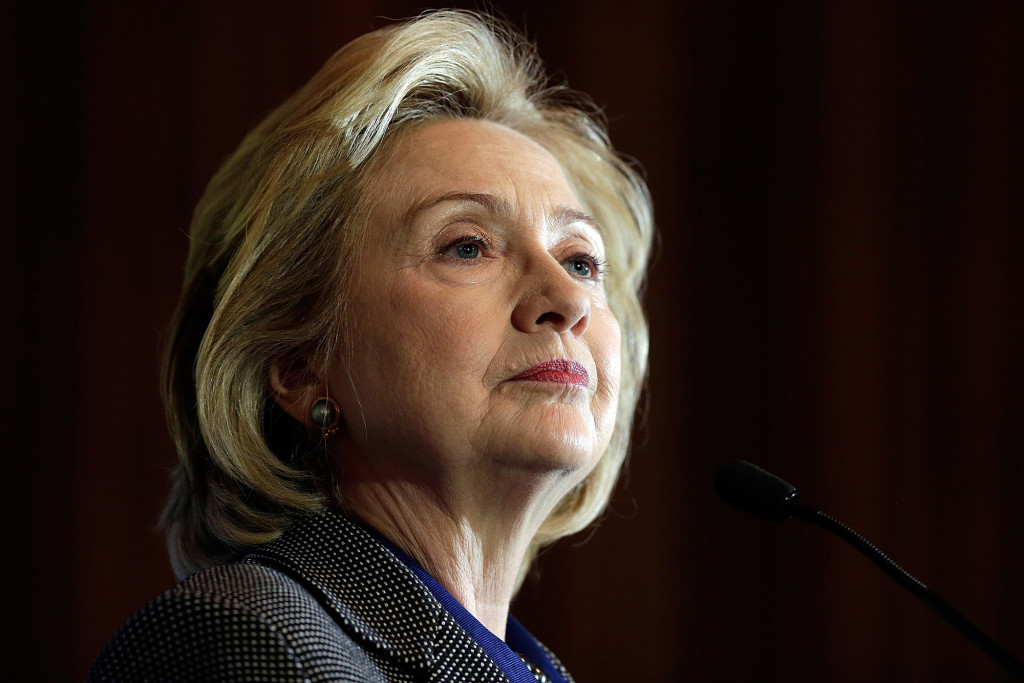
Russia-linked hackers tried at least five times to trick Hillary Rodham Clinton into infecting her computer systems while she was secretary of state, newly released emails show. It is unclear whether she was fooled into clicking any attachments to expose her account. Clinton received the virus-riddled emails, disguised as speeding tickets from New York, over four hours early on the morning of Aug. 3, 2011. The emails instructed recipients to print the attached tickets – and opening them would have allowed hackers to take over control of a victim’s computer. Security researchers who analyzed the malicious software in September 2011 said that infected computers would transmit information from victims to at least three server computers overseas, including one in Russia. That doesn’t necessarily mean Russian intelligence or citizens were responsible. Nick Merrill, a spokesman for Clinton’s Democratic presidential campaign, said: “We have no evidence to suggest she replied to this email or that she opened the attachment. As we have said before, there is no evidence that the system was ever breached. All these emails show is that, like millions of other Americans, she received spam.” Practically every Internet user is inundated with spam or virus-riddled messages daily. But these messages show hackers had Clinton’s email address, which was not public, and sent her a fake traffic ticket from New York state, where she lives. Most commercial antivirus software at the time would have detected the software and blocked it. The phishing attempts highlight the risk of Clinton’s unsecure email being pried open by foreign intelligence agencies, even if others also received the virus concealed as a speeding ticket from Chatham, New York. The email misspelled the name of the city, came from a supposed New York City government account and contained a “Ticket.zip” file that would have been a red flag. Clinton has faced increasing questions over whether her unusual email setup amounted to a proper form of secrecy protection and records retention. The emails themselves – many redacted heavily before public release – have provided no shocking disclosures thus far and Clinton has insisted the server was secure. During Clinton’s tenure, the State Department and other U.S. government agencies faced their own series of hacking attacks. U.S. counterterrorism officials have linked them to China and Russia. But the government has a large staff of information technology experts, whereas Clinton has yet to provide any information on who maintained her server and how well it was secured. Republican presidential candidate Marco Rubio told Fox News Channel on Wednesday, “The exposure of sensitive information to foreign intelligence agencies by communicating in an insecure manner is incompetent, it is malpractice, it’s inexcusable.” The emails released Wednesday also show a Clinton confidant urging her boss and others in June 2011 not to “telegraph” how often senior officials at the State Department relied on their private email accounts to do government business because it could inspire hackers to steal information. The discussion never mentioned Clinton’s own usage of a private email account and server. The exchange begins with policy chief Anne-Marie Slaughter lamenting that the State Department’s technology is “so antiquated that NO ONE uses a State-issued laptop and even high officials routinely end up using their home email accounts to be able to get their work done quickly and effectively.” She said more funds were needed and that an opinion piece might make the point to legislators. Clinton said the idea “makes good sense,” but her chief of staff, Cheryl Mills, disagreed: “As someone who attempted to be hacked (yes I was one), I am not sure we want to telegraph how much folks do or don’t do off state mail b/c it may encourage others who are out there.” The hacking attempts were included in the 6,300 pages the State Department released, covering a period when U.S. forces killed Osama bin Laden and the Arab Spring rocked American diplomacy. New York State police warned as early as July 2011 about emails containing warnings of traffic tickets that actually contained computer viruses. Clinton received five copies between 1:44 am and 5:26 am on Aug. 3, 2011. They appeared to come from “New York State — Department of Motor Vehicles,” warning that a car registered to Clinton was caught speeding “over 55 zone” on July 5. Clinton had no public events in Washington that day, following the July 4 holiday. The email instructed the recipient to “print out the enclosed ticker and send it to town court, Chatam Hall, PO Box 117.” The former first lady and New York senator had maintained that nothing was classified in her correspondence, but the intelligence community has identified messages containing “top secret” information. Clinton had insisted that all of her work emails were being reviewed by the State Department, but Pentagon officials recently discovered a new chain of messages between Clinton and then-Gen. David Petraeus dating to her first days in office that she did not send to the State Department. As part of Wednesday’s release, officials upgraded the classification level of portions of 215 emails, State Department spokesman John Kirby said. Almost all were “confidential,” the lowest level of classification. Three emails were declared “secret,” a mid-tier level for information that could still cause serious damage to national security, if made public. “The information we upgraded today was not marked classified at the time the emails were sent,” Kirby stressed. Republished with permission of The Associated Press.
Breaking Keystone silence, Hillary Clinton says she opposes pipeline

Whether it was by coincidence or not, Hillary Rodham Clinton picked a fortuitous time to announce that she opposes the Keystone XL pipeline. The longstanding criticism of Clinton’s reluctance to say where she stands on allowing the pipeline project to go forward was buried in the headlines by arrival of Pope Francis for his first visit to the United States. The next day, the pope’s call to action on climate change fit with Clinton’s reasons for opposing the pipeline. And it sets her up well for a few days of fundraising later this week in the San Francisco Bay area, where she was likely to face questions about her dithering among donors who are generally supportive of environmental causes. The Democratic presidential candidate said Tuesday that she had concluded the ongoing debate over whether the pipeline should be built had hindered a larger effort to curb global warming. “I think it is imperative that we look at the Keystone pipeline as what I believe it is – a distraction from the important work we have to do to combat climate change,” Clinton said in Des Moines, Iowa. “And unfortunately, from my perspective, one that interferes with our ability to move forward to deal with all the other issues. Therefore I oppose it.” Environmentalists have warned that the extraction and transport of oil risks setting back the fight against man-made climate change. Big business argues that the Canada-to-Gulf of Mexico project would create valuable jobs. On the presidential campaign trail, the debate over the pipeline has turned into a high-stakes fight for support and campaign cash as Clinton battles real and potential challenges. Opposing the pipeline puts her in line with rival Sen. Bernie Sanders, a favorite of the Democratic party’s left wing. Clinton’s opposition also sets out a marker as Vice President Joe Biden considers challenging her for the Democratic presidential nomination. Signs quickly surfaced that Clinton’s announcement was paying off for her. Tom Steyer, a California-based environmentalist and top Democratic donor, quickly credited Clinton for joining with “thousands of Americans calling on President Barack Obama to reject the Keystone XL pipeline in favor of building an American economy powered by clean energy.” On Wednesday morning, the pontiff joined Obama at the White House and made an urgent call to address climate change, warning it “can no longer be left to a future generation.” To be certain, Clinton’s unwillingness to offer a position had irritated liberals and environmentalists, and many winced when she said at a July town meeting in New Hampshire that if it was still undecided “when I become president, I will answer your question.” Clinton had said in 2010 that she was “inclined” to support the pipeline but had avoided taking a position after leaving the State Department in 2013. In recent weeks, Clinton expressed impatience over the Obama administration’s drawn-out deliberations and said last week in New Hampshire she was putting the White House “on notice” that she would soon announce her decision. Her campaign said the White House was briefed on Clinton’s position prior to her comments and she privately made her opposition known in discussions with labor officials in recent weeks. The announcement could set the boundaries for the environmental debate in next year’s presidential election. Republican candidates like former Florida Gov. Jeb Bush said on Twitter that Clinton’s decision proves she “favors environmental extremists over U.S. jobs.” Reince Priebus, the chairman of the Republican National Committee, meanwhile, said Clinton was being “blatantly dishonest” when she said her role at the State Department had prevented her from taking a position and said it was driven by concern about Biden joining the Democratic primary field. Clinton said in a posting on Medium on Wednesday that she would seek to modernize the U.S.’s energy infrastructure and develop new partnerships with Canada and Mexico to fight climate change in North America. She reiterated interest in creating an infrastructure bank to unleash investments in clean energy and said she would strengthen pipeline safety regulations and work to replace the country’s oldest pipes and riskiest train cars. “American energy policy is about more than a single pipeline to transport Canada’s dirtiest fuel across our country. It’s about building our future,” Clinton wrote. Republished with permission of the Associated Press.
Martha Roby: We will never forget

It is hard to believe 14 years have passed since the September 11, 2001 terrorist attacks on our country. None of us will ever forget where we were that day 14 years ago and how it affected us. The world changed before our very eyes, and, in many ways, it won’t ever be the same. I know you join me in remembering the nearly 3,000 victims who lost their lives at the World Trade Center in New York, the Pentagon in Arlington, Virginia, and on Flight 93 in Shanksville, Pennsylvania. We honor the heroes who emerged that day and in the months and years to come: the first responders who ran into flaming buildings and the soldiers who volunteered to serve in the aftermath, many of whom laid down their own lives. May we always solemnly reflect on how much has been sacrificed on our behalf. I believe it is also very important to share our memories of 9-11 with young people who were not alive or were too young to remember. Much like the memories of Pearl Harbor were passed along to us, we owe it to the next generation to explain what happened and how it reshaped our world. This reflection and sharing with young people can help us all reaffirm our steadfast belief in the American ideals of freedom, liberty and justice that make this country what President Abraham Lincoln called the “last best hope of Earth.” This week also marked the third anniversary of the September 11, 2012 terrorist attack on a U.S. diplomatic compound in Benghazi, Libya, that killed four Americans, including our U.S. Ambassador. We remember those victims who unnecessarily lose their lives and say a prayer for their families on what I’m sure is a very difficult time for them. As you know, I serve on the House Select Committee on Benghazi, which is charged with investigating what happened leading up to, during and in the wake of the attack. What began as far-from-clear explanations from the Obama Administration as to what exactly happened that day and why, has now turned into a remarkable stonewalling effort from the State Department on disclosing Benghazi-related communications to the Select Committee. Despite these roadblocks, I remain committed to a thorough and fact-based investigation on behalf of the victims, their families and the American people who deserve the truth about what happened on a very dark day for our country. The Select Committee will be interviewing some high-ranking officials in the coming weeks, including former Secretary of State Hillary Clinton and her top aides at the time. I will keep you posted on our progress. Martha Roby represents Alabama’s 2nd Congressional District. She is currently serving her third term.
Hillary Clinton, aides stressed protecting State Dept info in email
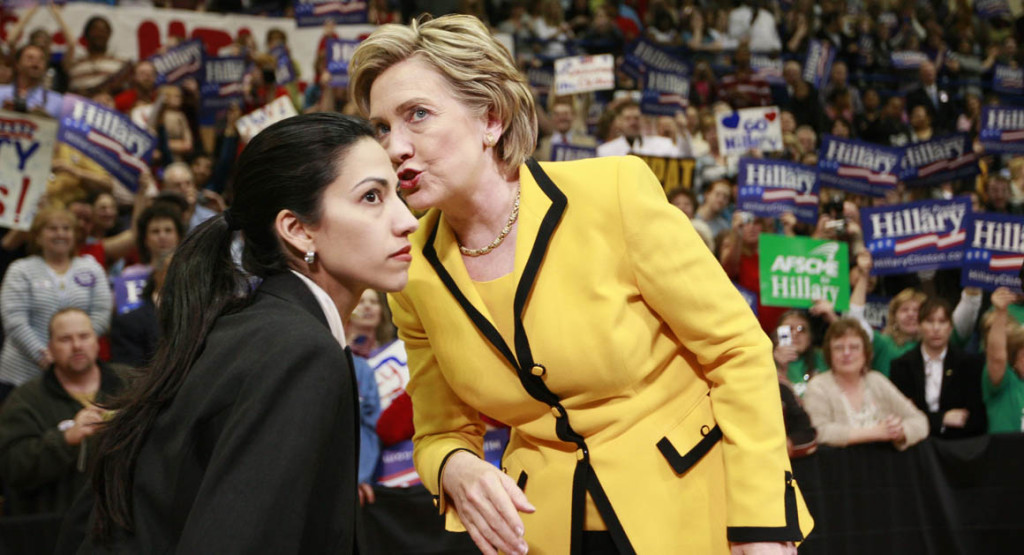
Hillary Rodham Clinton and her aides at the State Department were acutely aware of the need to protect sensitive information when discussing international affairs over email and other forms of unsecure electronic communication, according to the latest batch of messages released by the agency from Clinton’s tenure as secretary of state. The State Department made public roughly 7,121 pages of Clinton’s emails late Monday night, including 125 emails that were censored prior to their release because they contain information now deemed classified. The vast majority concerned mundane matters of daily life at any workplace: phone messages, relays of schedules and forwards of news articles. But in a few of the emails, Clinton and her aides noted the constraints of discussing sensitive subjects when working outside of the government’s secure messaging systems – and the need to protect such information. Senior adviser Alec Ross, in a February 2010 email intended for Clinton, cited frustration with “the boundaries of unclassified email” in a message about an unspecified country, which Ross referred to as “the country we discussed.” The email appears to focus on civil unrest in Iran during the period preceding the Green Movement, when Iranian protesters used social media and the Internet to unsuccessfully challenge the re-election of then-President Mahmoud Ahmadinejad. In an exchange from Feb. 6, 2010, Clinton asks aide Huma Abedin for talking points for a call she’s about to have with the newly appointed foreign minister of Ecuador. “You are congratulating him on becoming foreign minister, and purpose is to establish a personal relationship with him,” Abedin replied. “Trying to get u call sheet, its classified….” In another email from January 2010, Clinton aide Cheryl Mills responds angrily to a New York Times story based on leaked classified cables sent by Karl Eikenberry, the U.S. ambassador to Afghanistan. “The leaking of classified material is a breach not only of trust, it is also a breach of the law,” Mills wrote. Clinton also expressed frustration with the State Department’s treatment of certain ordinary documents as classified. After an aide noted the draft of innocuous remarks about the Israeli-Palestinian conflict was on the State Department’s classified messaging system, she responded, “It’s a public statement! Just email it.” Sent a moment later, the statement merely said that U.S. and British officials would work together to promote peace. “Well that is certainly worthy of being top secret,” Clinton responded sarcastically. All those email conversations with Clinton took place via her private email account, highlighting the challenge the front-runner for the Democratic presidential nomination faces as she struggles to explain her decision to set up a private email server at her New York home. She now says her decision to use a personal email account to conduct government business was a mistake. Government employees are instructed not to paraphrase or repeat in any form any classified material via unsecured email, which includes both the official state.gov email system and the account Clinton ran on her private server. State Department spokesman Mark Toner said Monday none of the information censored in Monday’s release was identified as classified when the emails were sent or received by Clinton, noting the redactions were made subsequently and only prior to the release of the emails under the Freedom of Information Act. In total, the State Department has now released 13,269 pages of Clinton’s emails, more than 25 percent of the total that she turned over from her private server, Toner said. Clinton provided the department some 30,000 emails she categorized as work-related late last year, while deleting a similar amount from her server because she said they were solely personal in nature. Clinton’s use of a private email may have created logistical problems communicating with State Department aides. “Well its clearly a state vs outside email issue,” wrote Abedin in August 2010, after another aide reported missing some messages from Clinton. “State has been trying to figure it out. So lj is getting all your emazils cause she’s on her personal account too.” Despite approving the creation of a relatively complex email system in her home, Clinton seemed puzzled by basic technology. In a July 2010 exchange, Clinton quizzed former staffer Philippe Reines on how to charge the Apple tablet and update an application. Reines asks Clinton if she has a wireless Internet connection, and she replies: “I don’t know if I have wi-fi. How do I find out?” A few of the messages released Monday hint at the ways Clinton’s family was involved in her work at the agency. Following the devastating Haiti earthquake in January 2010, Clinton wrote about her efforts to involve Bill Clinton in the disaster response. After an unnamed party assumed that former President Clinton’s preexisting role as a United Nations envoy to Haiti would sideline him from the reconstruction effort, Hillary stepped in. “I just spent an extra hour explaining the architecture” of the relief organizations, Clinton wrote. “Will fill wjc in on the plane.” Bill Clinton, who is often referred to by his initials “WJC,” ended up as co-chairman of the Interim Haiti Recovery Commission, a body with significant power over reconstruction funds. An email from Chelsea Clinton, addressed to “Dad, Mom,” offers a densely-written, seven-page assessment of conditions on the ground in Haiti based on her “data set and its clear limitations” after she took a four-day trip to the devastated island. “Please do not forward this in whole or in part attributed to me without asking me first,” she writes to her parents, saying she’s “happy to be an invisible soldier.” Republished with permission of the Associated Press.
Hillary Clinton lawyer says her email server was wiped clean
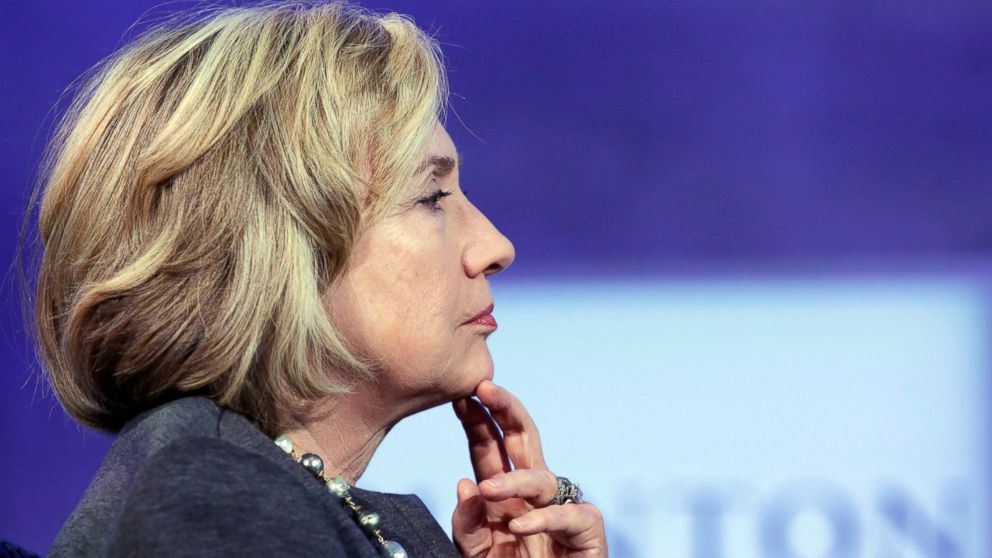
Hillary Rodham Clinton‘s personal lawyer has told a Senate committee that emails and all other data stored on her computer server were erased before the device was turned over to federal authorities. In a letter sent last week to Sen. Ron Johnson, R-Wis., the chairman of the Senate Homeland Security Committee, attorney David Kendall said the server was transferred to the FBI on Aug. 12 by Platte River Networks, a Denver firm hired by Clinton to oversee the device. The Senate committee made Kendall’s letter public on Wednesday. In exchanges with reporters earlier this week, Clinton said she was not aware if the data on her server was erased. Confirmation that the server was wiped clean came amid mounting confusion over how sensitive some of the Clinton emails were and how much of their contents should have been released. Clinton aides said at least two emails that might have triggered the federal inquiry were not marked secret at the time. But a Republican senator said Wednesday that U.S. inspector generals for the State Department and the intelligence community were told by some of the agency’s freedom of information specialists that department lawyers released some Clinton materials to the public over their objections. Federal investigators, prompted by a request from the inspector general for the State Department, requested custody of the server to learn whether the data stored on it was secure. NBC News has reported that an FBI team is now examining the server. Forensics experts told The Associated Press this week that some emails and other data may still be extracted from servers even after they are supposedly expunged. Separately, John Podesta, Clinton’s campaign chairman, told reporters Wednesday in Columbia, South Carolina, that, to his knowledge, no other copy had been made of the server’s contents other than those her lawyers turned over to the FBI. As campaign officials answered questions, one of Clinton’s rivals said the email issue has become a distraction for the Democratic Party. “I think that it’s a huge distraction from what we should be talking about as a party,” former Maryland Gov. Martin O’Malley told reporters in Nevada. Instead, he said more debates should be held among the candidates to address raising the minimum wage, repairing the country’s infrastructure and other issues. “Until we do, our party’s label is going to be the latest news du jour about emails and email servers and what Secretary Clinton knew and when she knew it.” O’Malley said some people in the Democratic National Committee are “circling the wagons.” Kendall, Clinton’s long-time personal lawyer, said in his letter to the committee that both he and another lawyer at his firm were given security clearances by the State Department to handle a thumb drive that contained about 3,000 emails later turned over to the agency. Kendall said the thumb drive was stored in a safe provided in July by the State Department. Kendall did not say when he was given his clearance from State. The GOP-dominated Senate Judiciary Committee has asked Kendall if he had any access to Clinton’s emails before he was given his security clearance. Republican senators on both committees are pressing to see whether any emails sent or received by Clinton on the private server while she was secretary of state contained any secret information that should have been only exchanged on secured, encrypted government communications portals. An inspector general for the State Department said recently that several emails sent to Clinton did include such classified material – signaling that the transmission of those emails may have risked violating government guidelines for the handling of classified material. Clinton campaign officials on Wednesday sought to show that the information contained in the emails that she received did not risk spillage of classified data at the time they were sent to her. During a conference call, campaign aides pointed to a Fox News report that at least two of the emails that prompted the inspector general’s referral may have contained sensitive information but were not marked “classified” at the time they were sent to Clinton by aides. Campaign spokesman Brian Fallon noted that the two emails were sent to Clinton from career diplomats, not political appointees, and that they “did not have information marked `classified’ or any classified documents attached to them.” Information in one of the documents, a 2012 email to Clinton about arrests in Libya, was later classified as secret by the FBI, but then released with redactions this year by the State Department, highlighting a dispute between the two agencies over whether the material should have been made public. A second email from 2011 was also released in full but reportedly contained classified military information. “All this goes to show that when it comes to classified information, not all standards are black and white,” Fallon said. There are disputes even within the State Department, said Senate Judiciary Chairman Sen. Charles Grassley, R-Iowa. In a letter sent Wednesday to Secretary of State John Kerry, Grassley said several State FOIA examiners told inspectors general that several lawyers from the State Department Office of the Legal Advisor fully cleared some Clinton emails for public release despite recommendations that several passages needed to be censored for national security reasons. “This dispute may have already contributed to at least one classified email being inappropriately released to the public,” Grassley said. He also questioned whether some State Department lawyers may have had potential conflicts of interest. State Department spokesman Alec Gerlach said: “The law is what governs redactions and upgrades. We are making appropriate redactions – following the standards laid out under FOIA for redactions as well as the rules governing classification as defined” by presidential orders. Republished with permission of The Associated Press.
Probe of Hillary Clinton’s server could find more than just emails
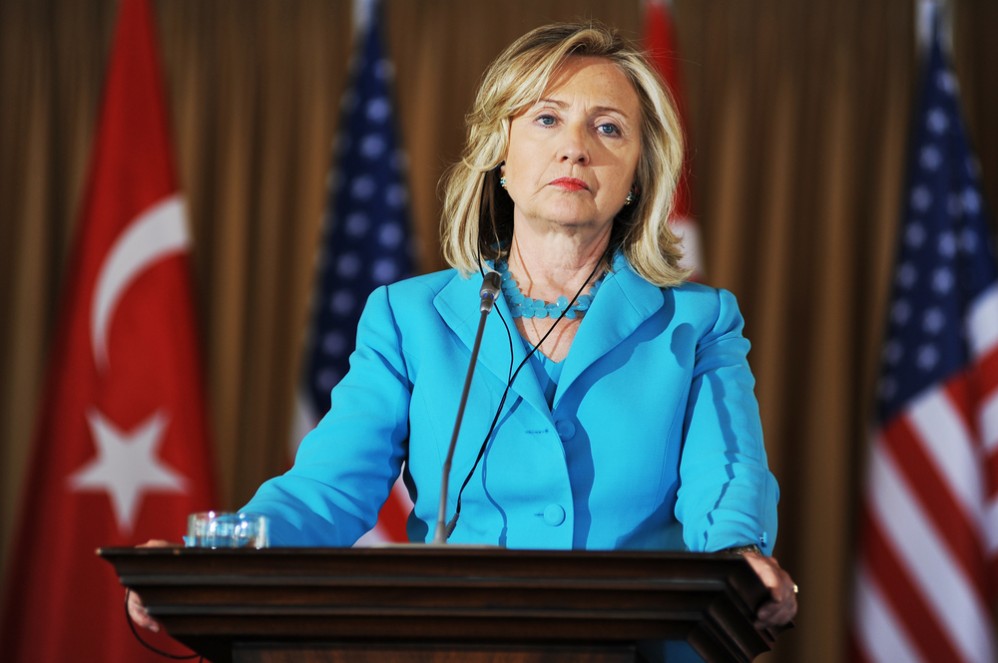
Now that federal investigators have Hillary Rodham Clinton‘s homebrew email server, they could examine files on her machine that would be more revelatory than the emails themselves. Clinton last week handed over to the FBI her private server, which she used to send, receive and store emails during her four years while secretary of state. The bureau is holding the machine in protective custody after the intelligence community’s inspector general raised concerns that classified information had traversed the system. Questions about her use of the server have shadowed her campaign for the Democratic presidential nomination. Clinton again this weekend repeated a carefully constructed defense of her actions, in that she did not send or receive emails marked classified at the time. But her emails show some messages she wrote were censored by the State Department for national security reasons before they were publicly released. The government blacked out those messages under a provision of the Freedom of Information Act intended to protect material that had been deemed and properly classified for purposes of national defense or foreign policy. What hasn’t been released: data that could show how secure her system was, whether someone tried to break in, and who else had accounts on her system. A lawyer for Platte River Networks, a Colorado-based technology services company that began managing the Clinton server in 2013, said the server was provided to the FBI last week. Indeed, many physical details of the server remain unknown, such as whether its data was backed up. In March, The Associated Press discovered that her server traced back to an Internet connection at her home in Chappaqua, New York. A computer server isn’t a marvel of modern technology. Just like a home desktop, the computer’s data is stored on a hard drive. It’s unclear whether the drive that Clinton used was thoroughly erased before the device was turned over to federal agents. If it had been, it’s also uncertain whether the FBI could recover the data. Clinton’s lawyer has used a precise term, “wiped,” to describe the deleted emails, but it was not immediately clear whether the server had been wiped. Such a process overwrites deleted content to make it harder or impossible to recover. An FBI spokesman declined to comment. Investigators who examine her server might find all sorts of information – how it was configured, whether it received necessary security updates to fix vulnerabilities in software, or whether anyone tried to access it without permission. Running a server is akin to her messages being stored inside an office file cabinet. But while a file cabinet only yields the documents stored inside, a server can also offer information about the use of that data over time: Who had access to the filing cabinet? Did anyone try to pick the lock? Did the owner attempt to alter the files in any way? And who was given keys to the building in the first place? Since her server was first installed in 2009, it most likely used a traditional hard disk-based device rather than a newer solid state unit that only has become commonly used in the last two or three years, said computer scientist Darren Hayes. Solid state drives, until recently, were much more expensive than their counterparts for storing lots of data. Forensics experts would then have an easier time retrieving erased data because such older, disk-based servers are not as efficient in deleting material, said Hayes, assistant professor and director of cybersecurity at Pace University’s School of Computer Science and Information Systems in New York. “A hard disk drive is very difficult to manipulate,” he said. “Once you get your hands on a hard drive, there’s a lot you can recover.” Even after files are marked for deletion on a disk, Hayes said, their contents remain on the drive and can be retrieved. Even if the full file is gone, fragments can be pulled off the drive. Sometimes a complete email file even can be found inside other files marked for deletion. Clinton said in March that she had exchanged about 60,000 emails during her four years in the Obama administration, about half of which were personal and deleted. She turned over the others to the State Department, which is reviewing and releasing them on a monthly basis. Last month, the inspector general for the nation’s intelligence community warned that some of the information that passed through Clinton’s server was classified information. It’s generally not possible to forward or cut-and-paste an email marked classified to a private account because classified email systems are closed to outsiders. But it can be illegal to paraphrase or retype classified information from a secure email into an unprotected message sent to a personal address. Hayes said forensics experts could, in most cases, determine whether the server used encryption to transmit emails, which would be important in learning whether her occasional email discussions of classified and sensitive matters might have been vulnerable to hackers and snooping by foreign governments. The server’s internal registry could also provide hints of whether hackers penetrated the server’s security. “They may have deleted a lot of data, but there’s a lot of data that a good forensics team would be able to recover,” he said. Republished with permission of The Associated Press.
Top secret Hillary Clinton emails include drone talk

The two emails on Hillary Rodham Clinton‘s private server that an auditor deemed “top secret” include a discussion of a news article detailing a U.S. drone operation and a separate conversation that could point back to highly classified material in an improper manner or merely reflect information collected independently, U.S. officials who have reviewed the correspondence told The Associated Press. The sourcing of the information in the emails could have significant political implications as the 2016 presidential campaign heats up. Clinton, the front-runner for the Democratic nomination, agreed this week to turn over to the FBI the private server she used as secretary of state, and Republicans in Congress have seized on the involvement of federal law enforcement as a sign that she was either negligent with the nation’s secrets or worse. On Monday, the inspector general for the 17 spy agencies that make up what is known as the intelligence community told Congress that two of 40 emails in a random sample of the 30,000 emails Clinton gave the State Department for review contained information deemed “Top Secret/Sensitive Compartmented Information,” one of the government’s highest levels of classification. The two emails were marked classified after consultations with the CIA, which is where the material originated, officials said. The officials who spoke to the AP on condition of anonymity work in intelligence and other agencies. They wouldn’t detail the contents of the emails because of ongoing questions about classification level. Clinton did not transmit the sensitive information herself, they said, and nothing in the emails she received makes clear reference to communications intercepts, confidential intelligence methods or any other form of sensitive sourcing. The drone exchange, the officials said, begins with a copy of a news article that discusses the CIA drone program that targets terrorists in Pakistan and elsewhere. While a secret program, it is well-known and often reported on. The copy makes reference to classified information, and a Clinton adviser follows up by dancing around a top secret in a way that could possibly be inferred as confirmation, they said. Several officials, however, described this claim as tenuous. But a second email reviewed by Charles McCullough, the intelligence community inspector general, appears more suspect. Nothing in the message is “lifted” from classified documents, the officials said, though they differed on where the information in it was sourced. Some said it improperly points back to highly classified material, while others countered that it was a classic case of what the government calls “parallel reporting” – different people knowing the same thing through different means. The emails came to light Tuesday after Sen. Chuck Grassley, R-Iowa, reported that McCullough found four “highly classified” emails on the unusual homebrew server that Clinton used while she was secretary of State. Two were sent back to the State Department for review, but Grassley said the other two were, in fact, classified at the closely guarded “Top Secret/SCI level.” In a four-page fact sheet that accompanied a letter to Clinton supporters, Clinton spokeswoman Jennifer Palmieri stressed that Clinton was permitted to use her own email account as a government employee and that the same process concerning classification reviews would still be taking place had she used the standard “state.gov” email account used by most department employees. The State Department, meanwhile, stressed that it wasn’t clear if the material at issue ought to be considered classified at all. Still, the developments suggested that the security of Clinton’s email setup and how she guarded the nation’s secrets will remain relevant campaign topics. Even if the emails highlighted by the intelligence community prove innocuous, she will still face questions about whether she set up the private server with the aim of avoiding scrutiny, whether emails she deleted because she said they were personal were actually work-related, and whether she appropriately shielded such emails from possible foreign spies and hackers. Clinton says she exchanged about 60,000 emails in her four years as secretary of state. She turned over all but what she said were personal emails late last year. The department has been making those public as they are reviewed and scrubbed of any sensitive data. The State Department advised employees not to use personal email accounts for work, but it wasn’t prohibited. But Clinton’s senior advisers at the State Department would have been briefed upon basic protocol for handling classified information and retaining government records. In Clinton’s time, most officials saved their emails onto a separate file or printed them out when leaving office. Only recently has the department begun automatically archiving the records of dozens of senior officials, including Secretary of State John Kerry. In the emails, Clinton’s advisers appear cognizant of secrecy protections. In a series of August 2009 emails, Clinton aide Huma Abedin told Clinton that the U.S. point-man for Afghanistan, Richard Holbrooke, and another official wanted “to do a secure” conversation to discuss Afghan elections. Clinton said she could talk after she received a fax of a classified Holbrooke memo, also on a secure line. Later, Abedin wrote: “He can talk now. We can send secure fax now. And then connect call.” But other times, the line was blurred. Among Clinton’s exchanges now censored as classified by the State Department was a brief exchange in October 2009 with Jeffrey Feltman, then the top U.S. diplomat for the Middle East. Both Clinton and Feltman’s emails about an “Egyptian proposal” for a reconciliation ceremony with Hamas are marked B-1.4, classified for national security reasons, and completely blacked out from the email release. A longer email the same day from Clinton to former Sen. George Mitchell, then Mideast peace envoy, is also censored. Mitchell responds tersely and carefully that “the Egyptian document has been received and is being translated. We’ll review it tonight and tomorrow morning, will consult with the Pals (Palestinians) through our Consul General, and then I’ll talk with Gen. S again. We’ll keep you advised.” Republished with permission of the Associated Press.
Hillary Clinton campaign seeks to calm supporters about emails
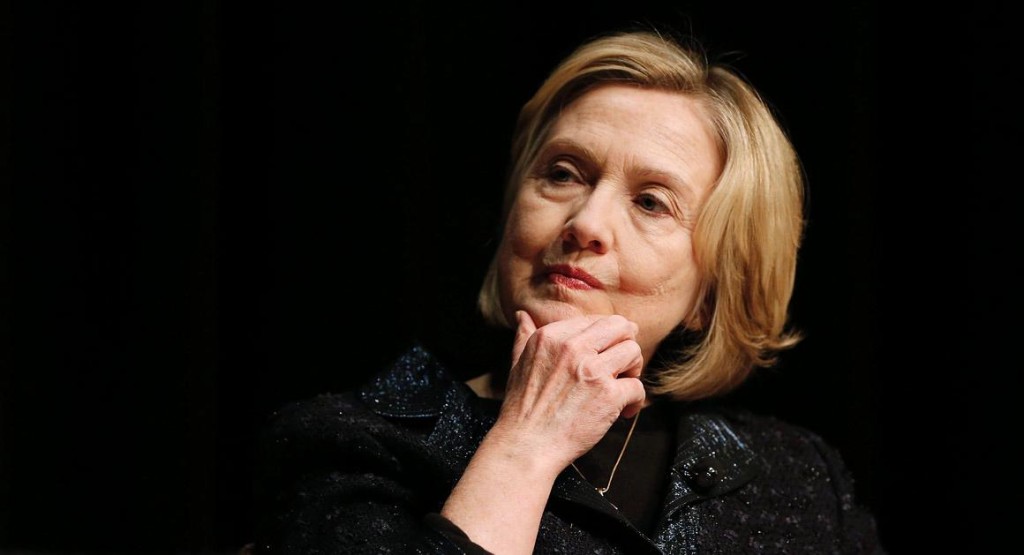
Hillary Rodham Clinton‘s campaign is assuring supporters that the Democratic presidential candidate did not send any classified materials over her personal email server. Clinton campaign communications director Jen Palmieri says Clinton is not facing a criminal investigation and remains “committed to cooperating” with federal inquiries into her private account. In a message sent to campaign backers on Wednesday, Palmieri says many of the Republican presidential candidates also used private email address for work and several former secretaries of state used personal accounts. The response comes a day after Clinton turned her personal server over to the FBI for investigation. Federal investigators have begun looking into the security of Clinton’s email setup after the inspector general of the U.S. intelligence agencies said that classified information may have passed through the system. THIS IS A BREAKING NEWS UPDATE. Check back soon for further information. AP’s earlier story is below. Hillary Rodham Clinton’s presidential campaign casts her decision to turn over her personal email server to the Justice Department as cooperating with investigators. Her Republican critics suggest that the move and new revelations about classified information points to her malfeasance as secretary of state. Two emails that traversed Clinton’s personal system contained information that had been designated “top secret” and “Sensitive Compartmented Information,” one of the government’s highest classification ratings, U.S. officials said. Federal investigators have begun looking into the security of Clinton’s email setup after the inspector general of the U.S. intelligence agencies said that classified information may have passed through the system. There is no evidence she used encryption to prevent prying eyes from accessing the emails or her personal server. “It’s about time,” House Speaker John Boehner said in a statement after the front-runner for the Democratic nomination announced that she was directing that the server be relinquished. “Secretary Clinton’s previous statements that she possessed no classified information were patently untrue. Her mishandling of classified information must be fully investigated.” Republican National Committee Chairman Reince Priebus said: “All this means is that Hillary Clinton, in the face of FBI scrutiny, has decided she has run out of options. She knows she did something wrong and has run out of ways to cover it up.” For months Clinton refused calls to give up the home-brew email server she used in her suburban New York City home to send and store email through a private account. She has defended her use of the server, saying she used it as a matter of convenience to limit the number of electronic devices she had to carry. She has said the server account never held classified information. Officials are investigating whether classified information was improperly sent, though it’s not clear if the device will yield any information. Her attorney said in March that no emails from the main personal address she used while secretary of state are on the server or back-up systems associated with it. Clinton campaign spokesman Nick Merrill said Tuesday that she has “pledged to cooperate with the government’s security inquiry, and if there are more questions, we will continue to address them.” In March, Clinton said she exchanged about 60,000 emails in her four years in the Obama administration, about half of which were personal and were discarded. She turned over the other half to the State Department last December. The department is reviewing those emails and has begun the process of releasing them to the public. On Tuesday, Clinton attorney David Kendall gave to the Justice Department three thumb drives containing copies of work-related emails sent to and from her personal email addresses via her private server. Kendall gave the thumb drives, containing copies of roughly 30,000 emails, to the FBI after the agency determined he could not remain in possession of the classified information contained in some of the emails, according to a U.S. official briefed on the matter who was not authorized to speak publicly. The State Department previously had said it was comfortable with Kendall keeping the emails at his Washington law office. Also Tuesday, Republican Sen. Chuck Grassley of Iowa said two emails that traversed Clinton’s personal system were deemed “Top Secret, Sensitive Compartmented Information” – a rating that is among the government’s highest classifications. Grassley said the inspector general of the nation’s intelligence community had reported the new details about the higher classification to Congress on Tuesday. Those two emails were among four that had previously been determined by the inspector general of the intelligence community to have been classified at the time they were sent. The State Department disputes that the emails were classified at that time. “Department employees circulated these emails on unclassified systems in 2009 and 2011 and ultimately some were forwarded to Secretary Clinton,” said State Department spokesman John Kirby. “They were not marked as classified.” The inspector general for the intelligence community had told Congress that potentially hundreds of emails containing classified information are among the cache that Clinton provided to the State Department. Earlier this week, Clinton said in a sworn statement submitted to a federal judge that she has turned over to the State Department all emails from the server “that were or potentially were federal records.” The statement, which carries her signature and was signed under penalty of perjury, echoed months of Clinton’s past public statements about the matter. Republished with permission of the Associated Press.
Hillary Clinton releases tax, health records on busy Friday
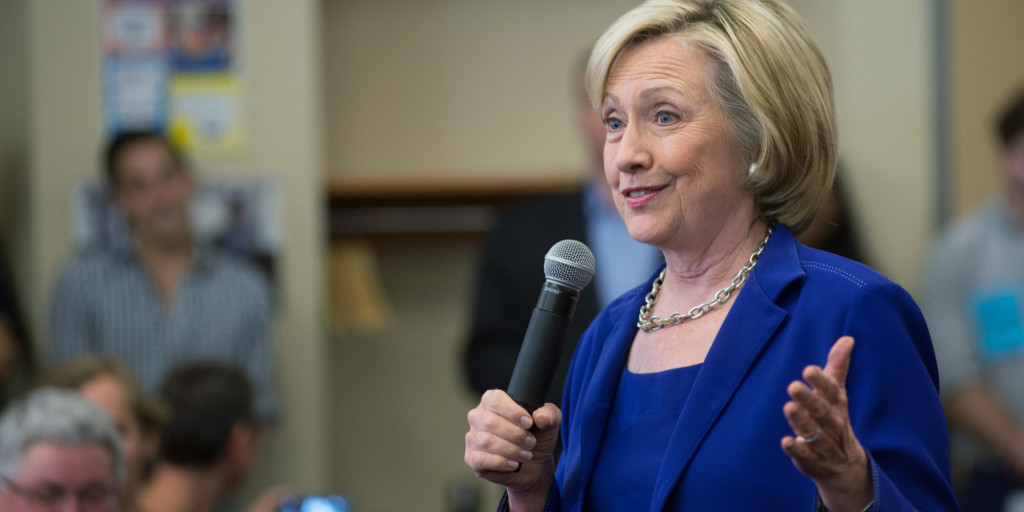
Hillary Rodham Clinton is in “excellent physical condition and fit to serve as president,” her physician declared Friday, just one in a flood of disclosures about the Democratic presidential candidate released by her campaign on a busy summer day. Within a three-hour period, the State Department made public more than 2,200 pages of emails sent from Clinton’s personal account, her campaign released the information about her health, and she unveiled eight years of tax returns. Meanwhile, Clinton herself was campaigning at the annual meeting of the National Urban League and calling for an end of the nation’s trade embargo of Cuba during a speech in Miami. Friday was also the deadline for super PACs to file their first financial reports of the 2016 campaign with federal regulators, revealing the names of a slew of billionaires and millionaires paying for the early days of the election fight. Campaign aides cast the records dump as part of an effort to compete with Republican presidential candidate Jeb Bush on the issue of transparency. Clinton is the first 2016 presidential candidate to release her health records, and aides said she planned to release more details about her finances than Bush, the former Florida governor who has already made public 33 years of his tax returns. The Clintons paid nearly $44 million in federal taxes and made almost $15 million in charitable contributions from the tens of millions the couple earned between 2007 and 2014, according to her campaign. Last year, they paid an overall federal tax rate of 35.7 percent. The couple earlier reported having earned more than $30 million from speeches and book royalties since mid-2013 In a statement, Clinton emphasized that she came into her wealth later in her life — an effort to draw a distinction with Bush, the scion of a rich political family. On the campaign trail, she frequently mentions her middle-class upbringing in a Chicago suburb and the loans she and former President Bill Clinton used to fund their education. “We’ve come a long way from my days going door-to-door for the Children’s Defense Fund and earning $16,450 as a young law professor in Arkansas — and we owe it to the opportunities America provides,” she said. Bush has earned nearly $28 million since leaving the Florida governor’s mansion in 2007 and paid an effective federal income tax rate of about 36 percent in the past three decades, according to tax returns released by his campaign last month. He’s said he paid a higher rate than the Clintons, though he earned less income. Both candidates are in the top 1 percent of taxpayers, who paid an average of 30.2 percent between 1981 and 2011, according to figures from the Congressional Budget Office. The average for middle-income households in that time was 16.6 percent. The financial release came just hours after Dr. Lisa Bardack, an internist and chairman of the Department of Medicine at the Mount Kisco Medical Group near the candidate’s suburban New York home, publicly detailed Clinton’s health in a two-page letter. The report said Clinton, who is 67, has fully recovered from a concussion she sustained in December 2012 after fainting, an episode that Bardack attributed to a stomach virus and dehydration. During the course of her concussion treatment, Clinton was also found to have a blood clot and was given medication to dissolve it. She remains on the medicine as a precaution, Bardack wrote. The blood clot, which was in a vein in the space between the brain and the skull behind the right ear, led Clinton to spend a few days in New York-Presbyterian Hospital and take a month-long absence from the State Department for treatment. Republican strategist Karl Rove later cast the incident as a “serious health episode” that would be an issue if Clinton ran for president, fueling a theory the concussion posed a graver threat to her abilities than Clinton and her team let on. Bardack said testing the following year showed “complete resolution” of the concussion’s effects, including double vision, which Clinton wore glasses with special lenses to address. According to her doctor’s assessment, Clinton’s cholesterol and blood pressure are in normal, healthy ranges, and she has had the major cancer screenings and exams recommended for someone her age. She has a very common thyroid condition and seasonal allergies, and takes a blood thinner — Coumadin — as a precaution since her fall and the blood clot. There was no mention of Clinton’s height or weight. “There’s no red flags there,” said Dr. Mark Creager, director of the Dartmouth-Hitchkock heart and vascular center in Lebanon, N.H., and president of the American Heart Association. The doctor noted that Clinton’s father lived into his 80s and her mother into her 90s. She has two brothers, and one had premature heart disease. Because of that family history, she had full cardiac testing, including an ultrasound exam of arteries in her neck, and all was well. Clinton’s doctor said she exercises regularly — practicing yoga, swimming, walking and weight training — and eats a diet rich in lean proteins, vegetables and fruits. She does not smoke and drinks alcohol “occasionally,” Bardack wrote. Republished with permission of The Associated Press.
Hillary Clinton to testify before House Benghazi panel on Oct. 22

The House committee investigating the 2012 attacks in Benghazi, Libya, says Hillary Rodham Clinton has agreed to appear before the panel on Oct. 22. Committee spokesman Jamal Ware says Clinton will be questioned about the attacks as well as the unusual email arrangement she used when she was secretary of state. Clinton’s campaign and House Republicans have sparred for months over her possible testimony and her refusal to turn over the private email server she used. House Speaker John Boehner said earlier this week that Clinton should “come clean” and turn the server over to the State Department‘s inspector general. The committee is investigating the deaths of the U.S. ambassador and three other Americans in the Sept. 11, 2012, attacks on the diplomatic facility in Benghazi. Republished with permission of The Associated Press.


